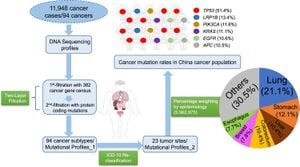The Justice Department has filed legal proceedings to block Hewlett Packard Enterprise’s (HPE) $14 billion acquisition of Juniper Networks, signaling heightened scrutiny on substantial mergers during the early days of the Trump administration. The initiative, occurring just ten days after Donald Trump’s inauguration, took many by surprise, as many anticipated a more lenient approach to mergers and acquisitions.
According to the Justice Department, the merger could severely diminish competition within the market, resulting in elevated prices for consumers and reduced innovation overall. The complaint highlights HPE's struggles as it faces increasing competitive pressure from Juniper Networks, claiming this has led HPE to resort to drastic measures, including discounted prices and increased investment in innovation. Essentially, the merger is seen as HPE's attempt to maintain its market position against Juniper’s rapid rise.
“The proposed transaction between HPE and Juniper, if allowed to proceed, would...leave U.S. enterprises facing two companies commanding over 70% of the market,” said the Justice Department’s complaint, illustrating significant concerns over market concentration. Combined, HPE and Juniper are positioned as the second and third largest providers of wireless local area network (WLAN) products and services, and such consolidation could result if the merger goes through.
Both HPE and Juniper responded to the lawsuit, issuing a joint statement underscoring their opposition to the DOJ's actions. “We will vigorously defend against the Department of Justice’s overreaching interpretation of antitrust laws and will demonstrate how this transaction will provide customers with greater innovation and choice, positively change the dynamics in the networking market,” they declared. The companies believe the merger would promote competition by providing more innovative solutions to consumers rather than suppressing market options.
The timing of this intervention is significant. Underprevious President Biden's command, federal regulatory bodies took aggressive stances on antitrust issues, blocking notable mergers including Kroger’s proposed acquisition of Albertsons, and dismantling partnerships such as American Airlines and JetBlue. Analysts had speculated about what would happen under Trump's presidency, with many predicting relaxed controls over mergers.
This expectation of less enforcement was juxtaposed with the Justice Department’s recent actions. The merger to acquire Juniper had been presented as part of HPE's plans to double its networking business, proposing to pay $40 per share—a decision reflecting their strategies to gain leverage over market dynamics.
Yet, the government alleges HPE’s decisions stemmed from what they perceive as desperation, claiming HPE viewed Juniper as growing competition, even leading its sales team to treat competition like “a street fight” with no rules. Former executives reportedly encouraged team members to prioritize defeating Juniper at all costs.
This development highlights the delicate balancing act regulators must navigate as they observe the impacts of both corporate growth strategies and market viability. Stakeholders are watching closely to see how Trump’s administration will handle this case, particularly as it may set precedence for future initiatives against other substantial mergers.
The company’s anticipated merger is observed within the broader narrative of shifting regulatory priorities and potential future repercussions on competitive landscapes not just within tech but across the entire business environment, as public sentiment continues to shape economic and policy directions.
One area of conflict remains the perception of antitrust overreach, with many investors and businesses alike expressing criticism toward Biden’s regulatory approach. This historical perspective versus the new direction under Trump will be pivotal, as the administration contends with both the realities of the modern marketplace and the expectations set forth by corporate America.
While the case moves forward, more developments are anticipated, and it will be imperative for HPE and Juniper to establish their case for why this merger is not only beneficial for the companies involved but also for the overall market health.



